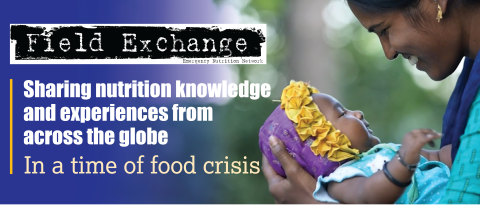Integrating maternal nutrition into antenatal care services in African and Asian contexts
This is a summary of the following paper: Sanghvi T, Nguyen PH, Ghosh S et al (2022) Process of developing models of maternal nutrition interventions integrated into antenatal care services in Bangladesh, Burkina Faso, Ethiopia and India. Maternal & Child Nutrition, 18, 4, e13379. https://onlinelibrary.wiley.com/doi/full/10.1111/mcn.13379
Antenatal care (ANC) remains a widely used and vital service for pregnant women, and one that also provides a window of opportunity to deliver a package of nutrition interventions. This is not only pertinent for women themselves, but also reflects the importance of maternal nutrition in dictating the health and development trajectory of their children. The integration and, more importantly, scale-up of such nutrition services into ANC across multiple contexts is therefore a global health priority.
For the paper reviewed in this summary, the authors worked in four diverse countries (Bangladesh, Burkina Faso, Ethiopia and India) to develop and subsequently implement a package of globally recommended maternal nutrition interventions1 through existing ANC programmes. At the outset, an overarching Theory of Change that illustrates the country’s programme needs was developed to describe common barriers and strategies, expected outcomes and health and nutrition impacts. Importantly, current global recommendations were implemented for each aspect of the package protocols, and steps were taken to reinforce the systems across multiple domains. A detailed breakdown of these aspects is beyond the scope of this summary, but the collective strengthening and updating of this suite of interventions occurred between 2014 and 2021. The findings provide models of how to integrate and enhance the package of interventions through existing ANC programmes in each of the four countries.
It is important to note that the Bangladesh and India elements of this intervention were incorporated prior to the outbreak of COVID-19, but that the Burkina Faso and Ethiopia elements were affected by the pandemic. Although adaptions were made to maintain service delivery in these two countries, it is reasonable to assume that the pandemic exerted a detrimental effect on these arms of the study, which should be considered when interpreting these findings. As the researchers integrated this package of interventions into existing, large-scale ANC programmes, the paper focuses on scalability through system-wide improvements, rather than at the health facility and community level.
Another challenge when interpreting these findings is the sheer size of the experiences captured – seven years of lessons learnt obtained across diverse settings, each with particular health needs and differing gaps in existing services – so distilling these findings into a summary is a challenge. The findings of this paper provide rich operational insights for those in other contexts to reduce missed opportunities for integrating maternal nutrition into ANC and nutrition into health services more broadly. The authors highlight the importance of combined facility-based and community-based approaches to improve service provision and adoption. Setting aside appropriate windows for field implementation and adjustment is also important when applying global guidelines to national health services, as each setting is likely to present unique challenges. Despite the differences, the authors noted common actions that proved effective in each context, which can crudely be grouped into improved training (of staff), outreach (in communities) and strengthening (of data collection).
1 Interventions included as part of the package included micronutrient supplementation (iron-folic acid and calcium distribution and counselling), weight gain monitoring (measurement and counselling), dietary counselling (meal frequency, food amounts and dietary diversity) and breastfeeding counselling (early initiation and exclusive breastfeeding).


